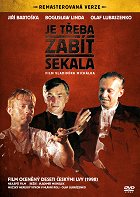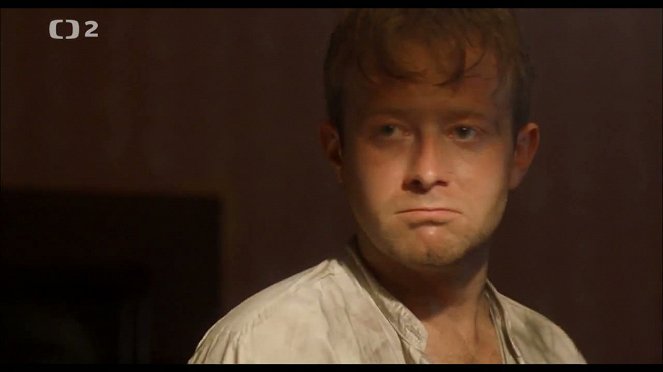Directed by:
Vladimír MichálekScreenplay:
Jiří KřižanCinematography:
Martin ŠtrbaComposer:
Michal LorencCast:
Boguslaw Linda, Olaf Lubaszenko, Jiří Bartoška, Agnieszka Sitek, Vlasta Chramostová, Ľudovít Cittel, Martin Sitta, Jiří Holý, Milan Riehs, Anton Šulík st. (more)Plots(1)
Vladimír Michálek adapted Jiří Křižan's symbolic work of Nazi occupation as it plays out in a Catholic village in Moravia. A young Protestant blacksmith and partisan named Jura Baran takes refuge in a village where the inhabitants live in fear of a local farmer. Through collaboration with the Germans, he is taking over both their property and their lives. The only way out is to induce Baran to kill him. (official distributor synopsis)
(more)Reviews (4)
From the perspective of craftsmanship, this film is an example of highly professional work that is not often seen in our region.
"Sekal" is certainly among the top five films in our post-communist history. Compared to the semi-amateur approach of many creators, it is an example of highly professional work by the entire crew and especially the production. Yes, one can discuss the "cold calculation" and the "contrived plot", but in terms of drama, "Sekal" works, unlike many so-called art films made for the director and a few close friends. The idea of bringing the film to life with the participation of Polish actors is excellent because playing in a small sandbox is not sensible, and Lubaszenko and Linda are among the top Polish actors. In addition to depicting the stale atmosphere of a conservative environment in a remote Moravian village, the film brings up a fundamental question: to what extent does our surroundings shape us, and where is the cause and effect of human actions, or has Sekal become a human swine because the surroundings behaved swinishly towards him, and it could have been different if...? Overall impression: 90%.
()
Of similar films set during the Protectorate, Sekal Has to Die comes off as a film that is still learning to deal with that historical era. It's a powerful ancient drama with elements of a western. Everybody wears the same clothes, the village is empty, the local elders decide as one man, and apart from the two solitaires, only the church comes into the picture. The international cast forces the production into erratic post-synchronicities and heightens the sense of foreignness by having the evil and its judge played by Poles. The whole is intense, but lacking in the individual parts. Bartoška and Chramostová managed to transcend their shadow and Gustav Nezval was given the best role at the end of his. However, the reputation that Michálek earned in the 1990s was not fulfilled in the following two decades, and today he is no longer a name that automatically arouses interest and expectations.
()
What an atmosphere. The camera was perfect, I felt like I was really standing by the cornfields, and I could smell the scent rising from the sun-heated grass and see the hot air shimmering above the corn. Sorry, childhood memories. And that's the point, the creators were able to make me recall all that, which is pretty impressive. And it wasn’t just the camerawork, the film also had a great story, the characters were well cast and the only thing that annoyed me was the final duel which didn't feel very natural. I understand that the creators didn't want to get in trouble with the Polish in case one (or both) of the men didn’t return from their business trip, but you could really tell. But that’s just me quibbling over details, overall it was a treat.
()
I have avoided this film for a long time because I didn't really believe in it, but I just convinced myself again that I should give everyone a chance. "Je třeba zabít Sekala" is a film with a great plot, which doesn't escalate significantly, but does so gradually, both humanly and inhumanly. It's a film about people you don't want to like, but you know deep down that such people exist.
()

